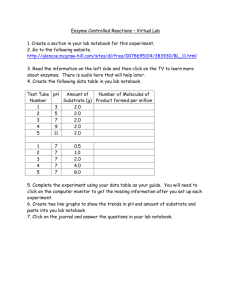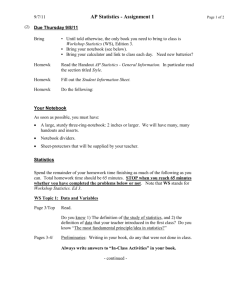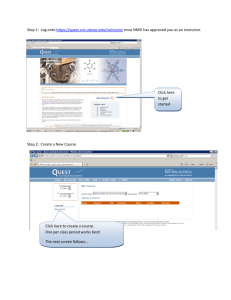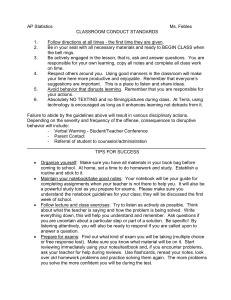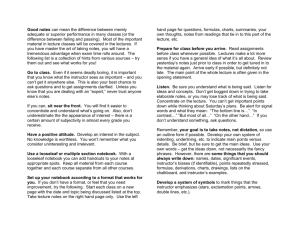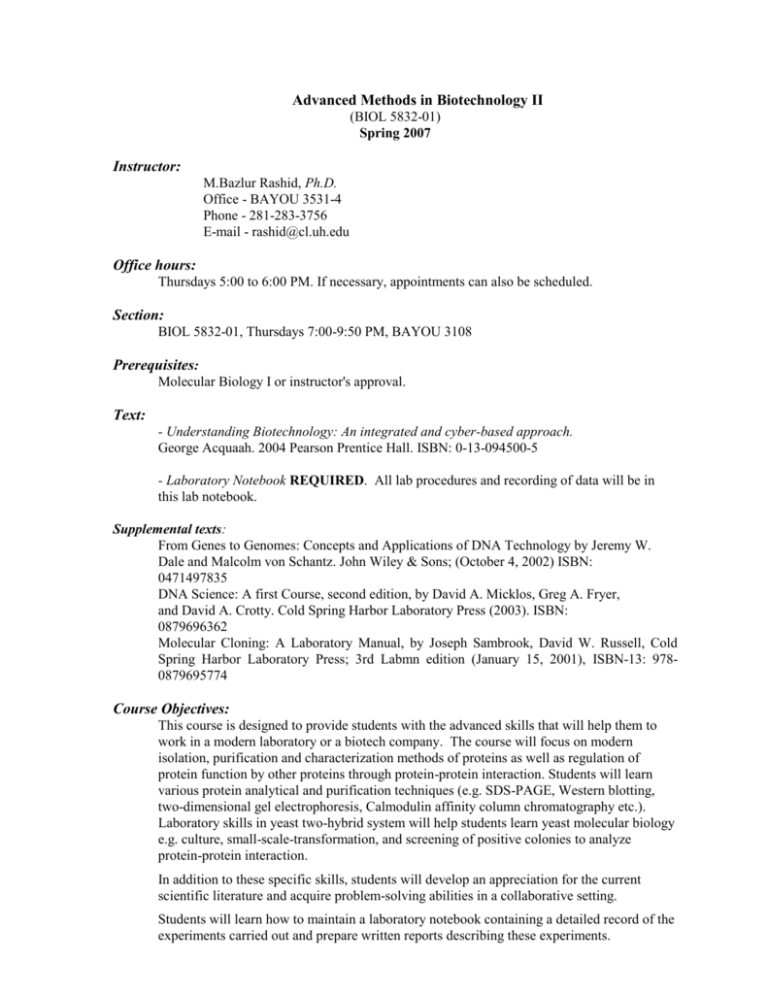
Advanced Methods in Biotechnology II
(BIOL 5832-01)
Spring 2007
Instructor:
M.Bazlur Rashid, Ph.D.
Office - BAYOU 3531-4
Phone - 281-283-3756
E-mail - rashid@cl.uh.edu
Office hours:
Thursdays 5:00 to 6:00 PM. If necessary, appointments can also be scheduled.
Section:
BIOL 5832-01, Thursdays 7:00-9:50 PM, BAYOU 3108
Prerequisites:
Molecular Biology I or instructor's approval.
Text:
- Understanding Biotechnology: An integrated and cyber-based approach.
George Acquaah. 2004 Pearson Prentice Hall. ISBN: 0-13-094500-5
- Laboratory Notebook REQUIRED. All lab procedures and recording of data will be in
this lab notebook.
Supplemental texts:
From Genes to Genomes: Concepts and Applications of DNA Technology by Jeremy W.
Dale and Malcolm von Schantz. John Wiley & Sons; (October 4, 2002) ISBN:
0471497835
DNA Science: A first Course, second edition, by David A. Micklos, Greg A. Fryer,
and David A. Crotty. Cold Spring Harbor Laboratory Press (2003). ISBN:
0879696362
Molecular Cloning: A Laboratory Manual, by Joseph Sambrook, David W. Russell, Cold
Spring Harbor Laboratory Press; 3rd Labmn edition (January 15, 2001), ISBN-13: 9780879695774
Course Objectives:
This course is designed to provide students with the advanced skills that will help them to
work in a modern laboratory or a biotech company. The course will focus on modern
isolation, purification and characterization methods of proteins as well as regulation of
protein function by other proteins through protein-protein interaction. Students will learn
various protein analytical and purification techniques (e.g. SDS-PAGE, Western blotting,
two-dimensional gel electrophoresis, Calmodulin affinity column chromatography etc.).
Laboratory skills in yeast two-hybrid system will help students learn yeast molecular biology
e.g. culture, small-scale-transformation, and screening of positive colonies to analyze
protein-protein interaction.
In addition to these specific skills, students will develop an appreciation for the current
scientific literature and acquire problem-solving abilities in a collaborative setting.
Students will learn how to maintain a laboratory notebook containing a detailed record of the
experiments carried out and prepare written reports describing these experiments.
Testing:
All the material covered in the exams will be based on information from the text-book,
handouts and laboratory exercises. In order to do well in this course, the assigned reading
must be read before lecture to help you grasp the problems and to ask for clarification of
concepts when necessary. Remember that during the lecture because of time limitations you
will get just a brief introduction to the topics you must know to pass this course.
UHCL Honesty Policy:
Please review the UHCL Academic Honesty Policy on pages 78-81 of the 2006-2007 UHCL
catalog. All students at the University of Houston-Clear Lake are expected to maintain
complete honesty and integrity in all academic work attempted while enrolled at the
University. This standard of conduct includes reporting incidents of alleged violation of the
honesty policy to the instructor involved or, if necessary, to the appropriate academic dean.
Each student acknowledges, by the mere act of turning in work for a grade, that he or she has
honored the Academic Honesty Code, which states, “I will be honest in all my academic
activities and will not tolerate dishonesty.”
Grades:
Midterm
Final Exam
Lab Notebook
Pre-lab/assignments
Group Presentation
Total =
30 %
40 %
10 %
10 %
10 % (must submit your PowerPoint presentation printouts)
100 %
Grading Scale:
A
AB+
93-100%
88-92%
86-87%
BC+
C
80-82%
77-79%
73-76%
D+
D
D-
67-69%
63-66%
60-62%
B
83-86%
C-
70-72%
F
< 59%
Testing:
There will two exams: midterm and final during the semester. Each exam will consist of fill-in-theblank, true/false, matching questions, definitions and short answer questions. The exams will include
50% lecture and 50% lab related questions. Final will contain 70% new topics not tested yet and 30%
old topics. There will be a 10% bonus question in each exam for extra credit. Group presentation
must be between 15 to 20 minutes. Points will be taken off if you exceed the timing limit. The title of
presentation will be like “purification of protein X” that will be based on an original article. Grading
of presentation will be based on clarity of your talk and answering two general questions from the
instructor about your topic.
Make Up Exams:
Make up test will be offered only to those who will serve valid excuses (e.g. physician’s
note). Make up tests will be more difficult than actual tests. There are no make-ups for labs.
If you miss the lab, it is a zero for that lab.
Laboratory Assignments:
A detailed description of laboratory exercises will be provided at the beginning of each
laboratory. Instructor or teaching assistant prior to the laboratory assignment will
demonstrate assignments. Students will keep a laboratory notebook describing the
assignments, the procedure, the results and the conclusions.
Laboratory Safety:
Students are expected to behave professionally at all times and follow laboratory
safety rules.
Wear safety glasses at all times during performing experiments.
Be cautious with all equipments. If you have questions about the operation of a
equipment, please ask.
Dispose of all materials that have contacted cells into red or orange biohazard bags.
Dispose of all solutions according to instructions from the instructor.
Do not eat or drink in the laboratory at any time!!
When another student is performing an experiment do not purposely distract them.
Individual who either purposely or persistently violate these safety procedures will
be given an 'F' for that laboratory procedure (It is up to the instructor to determine a
safety violation).
If an emergency situation occurs in the lab, call the campus police (#2222) using the
phone in the Tissue Culture Laboratory. One of the buttons has been programmed for the
campus police number.
Laboratory Notebook:
Lab notebook has to be maintained. The instructor will check the notebook time to time to
grade for prelab purposes.
Outline and rules for lab write-ups: The following outline should be used. You must follow
this outline and rules. At the end of the semester, you will hand in your notebook for a final
grade.
A.
Title of Experiment and Date
B.
Purpose of Experiment
C.
Materials (include calculations for all solutions)
D.
Methods (write pre-lab on the left half of the page and record
procedures performed on right half during experiment.)
E.
Results: Record all results in the notebook. All pictures and
printouts are raw data and should be properly taped into the
notebook and labeled.
F.
Conclusions: Record your conclusions for the experiment in the
notebook.
NOTE: Rules for writing in the laboratory notebook.
1.
Write in black ink only (no pencil!).
2.
If you make a mistake, mark through the mistake. Do not rip the page out or
use whiteout.
3.
Have "Advanced Methods in Biotechnology II Notebook (Spring 2007),
Instructor: Dr. Bazlur Rashid, then your name, and your phone number or email address" written on the front cover and also first page.
Advanced Methods in Biotechnology II
BIOL 5832-01 Spring 2007
Tentative Schedule (modification in the schedule may be made whenever necessary)
Date
Activity/Reading
Lecture
Laboratory
01/18/07
Introduction
Chapters 1, 2, and 3
-Lab safety
-Introduction to Biotechnology
and review of genetics
-The Nature of Living Things:
The Central Dogma
-Preview of lab 1
01/25/07
Chapter 14 (page 190191) and hand outs
Lecture on Yeast cells and
Yeast two-hybrid System
Preview of lab 2
Lab 1: Preparation of media for
yeast culturing
02/01/07
Chapters 4, and 6
-The nature of living things
-Recombinant DNA technology
Preview of lab 3
Lab 2: Yeast two-hybrid
System- transformation
Discussion of yeast two hybrid
system
Preview of lab 4
Lab 3: Yeast two-hybrid
System- analysis
02/08/07
02/15/07
Chapters 8
Hand outs
Lecture on "Two-dimensional
Gel Electrophoresis of
Proteins"
Preview of lab 5
Lab 4: Yeast two-hybrid
System- analysis
02/22/07
Chapters 9, 10
Molecular markers, and DNA
fingerprinting
PCR
Lab 5: Two-dimensional Gel
Electrophoresis of Proteins:
Isoelectric focusing
Preview of lab 6
03/01/07
03/08/07
Chapter 13:section 2
Protein structure determination
Discussion of 2D gel data
Review for midterm exam
03/15/07
Spring Holidays
No Class!!
03/22/07
Midterm
Chapter 14
Lab 6: Two-dimensional Gel
Electrophoresis of Proteins:
SDS-PAGE analysis and
staining
Lab extra day
Lab extra day
DNA Microarrays
Preview of lab 7
Preview of lab 8
03/29/07
Chapter 15
04/05/07
Modifying protein production
Lecture on “cloning and
overexpression of protein
PYI”
Lecture on “Calmodulin
affinity column”
Preview of lab 9
Preview of lab 10
Lab 7: Preparation of media for
bacterial culture
Lab 8: Setting up PCR to
amplify PYI gene from
genomic DNA
Discussion of labs 7 to 10
Lab 9 : Transform BL21 cells
with PYI-containing plasmid
Preview of lab 11
Lab 10: Transform BL21 cells
with pTC12 that contains CBPfused LacZ gene
Preview of lab 12
04/12/07
Chapters 18, 19
Industrial applications
Environmental applications
Lab 11: Preparation of lysates
from BL21 cells (obtained from
labs 9 and 10)
Preview of Lab 14
Preview of lab 15
Lab 12: Calmodulin affinity
chromatography
Lab 13: Purification of PYI
protein
04/19/07
Chapter 25
Lab 14: SDS-PAGE analysis of
CBP-LacZ and PYI
Lab 15: Enzymatic analysis of
PYI
04/26/07
05/03/07
Review for final exam
Student Presentations!
FINAL EXAM
Notebooks due!

